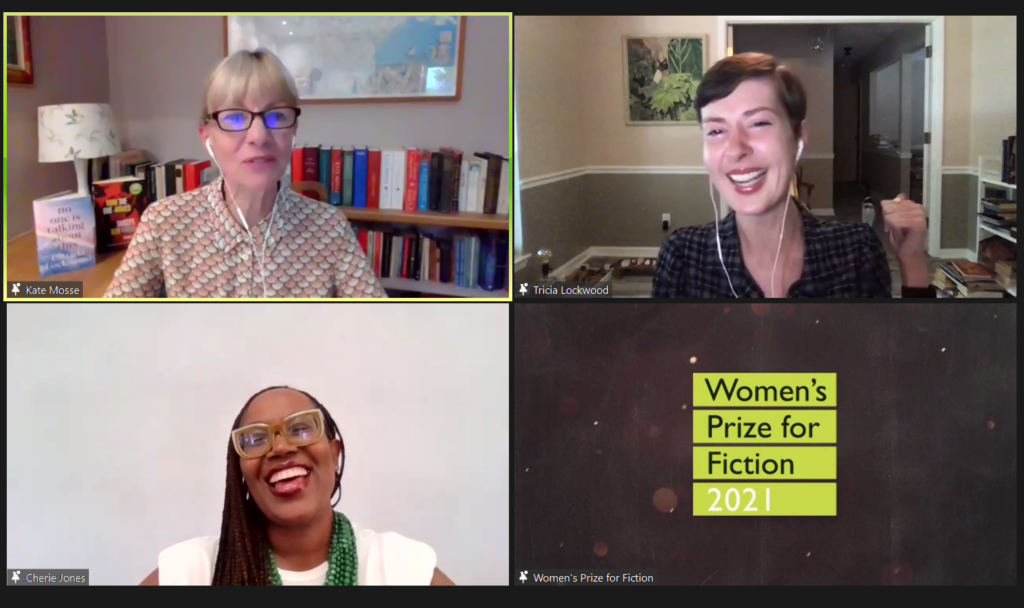Missed the final night of our Virtual Shortlist Festival? Read on for the highlights!
Last night, the Women’s Prize for Fiction Virtual Shortlist Festival came to a triumphant close. Women’s Prize Founder Director and novelist Kate Mosse hosted our final two shortlisted authors, Cherie Jones (How the One-Armed Sister Sweeps Her House) and Patricia Lockwood (No One Is Talking About This). Actors Jade Anouka and Hayley Atwell delivered powerful readings from each novel. The authors discussed the portrayal of violence against women, the endless nature of the internet, and the impact of generational trauma.
We kicked off with a reading from How the One-Armed Sister Sweeps Her House performed by His Dark Materials actor Jade Anouka.
Cherie Jones discussed why she portrays violence against women in her work: ‘It was important to me that the reader experienced the violence that the female characters from the book do, especially Lala. I wanted to depict that violence in a non-gratuitous way so I could explore the impact that violence had on both Lala and the wider community. The reader needed to come into that space, to have the door closed and experience that with the characters, without being distracted by the physical horror.’
She reflected on the way different societies view women: ‘If we continually judge women by certain standards or restrict women in certain ways, when we have a woman who is not equipped to self-realise in those parameters, how does she survive? How does she triumph? Perhaps those two characteristics need to be viewed differently.’
Following this conversation, Captain America and Mission Impossible actor Hayley Atwell performed a reading from Patricia Lockwood’s No One Is Talking About This.
The audience was treated to a surprise special guest, Patricia Lockwood’s adorable cat, who incidentally provided the inspiration for the cat in her shortlisted novel.
Patricia Lockwood shared how the endless nature of the internet impacted her writing process: ‘My novel was not just going to be about the internet, but I did have the sensation that it could have been written forever as I went on. You could write a version of this book that stretched and stretched, that couldn’t be contained between covers.’
She then addressed how whilst initially social media seemed like a vehicle for women’s empowerment, the relationship has taken on a negative quality: ‘Women were encouraged to write about the rawest, most intense things that had happened to them and offer them up into the marketplace. It was empowering to read those things. For a while, it was a way to achieve unity and discuss serious issues. Then, it became commodified. The language was taken from us and turned into marketing speech.’
In our final live audience Q+A, Cherie Jones addressed the role of generational trauma in her writing.
Cherie Jones spoke about her observations on generational trauma: ‘I’ve observed how trauma moves through generations, how the attitudes and approaches to an acceptance of violence towards women are almost reinforced by women generation to generation. For me, I think my depiction came from my own experience; it found its way into Lala’s story.’
Thank you for joining us for a wonderful three nights at the Women’s Prize for Fiction Virtual Shortlist Festival.
Want to watch the final event in full? Catch up here:



